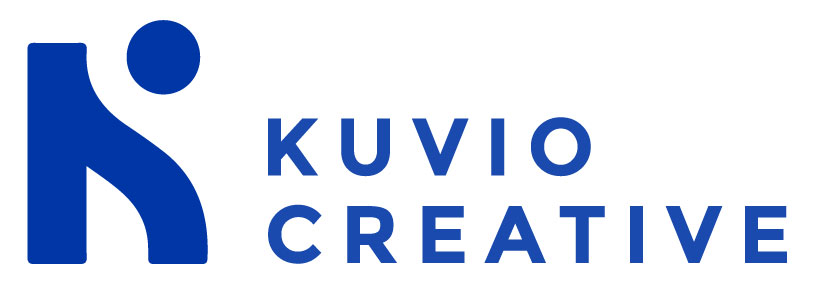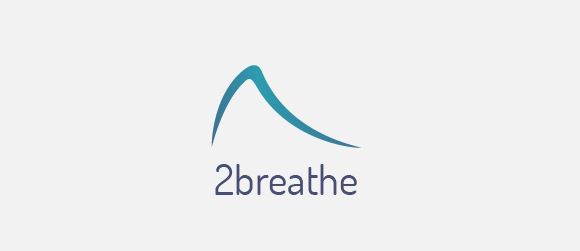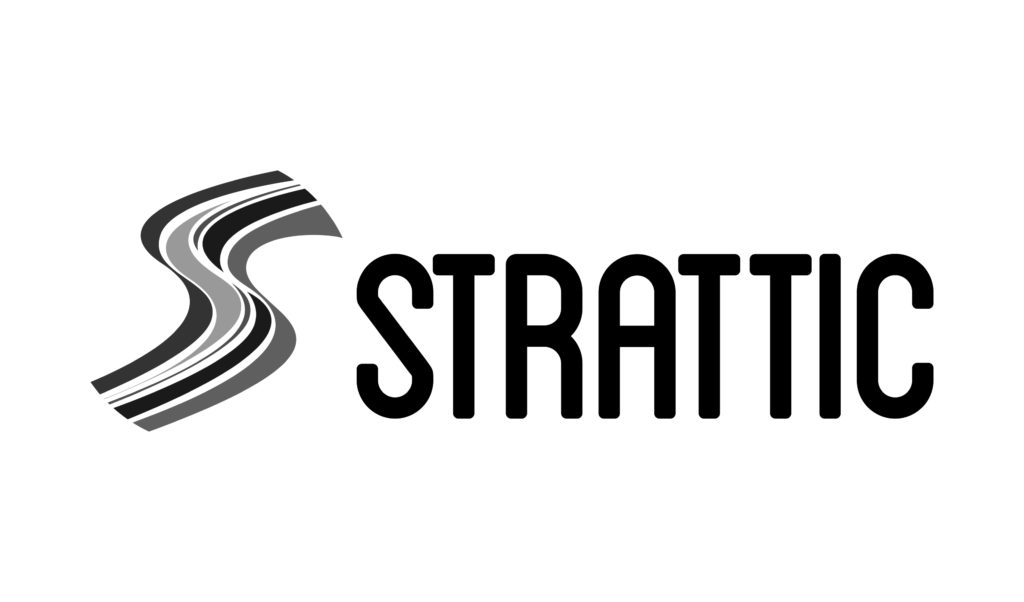 Startups #nofilter had the pleasure to sit down with Joseph Young, CEO and creator of Conseris, a revolutionary all in one data collection app which makes data visualization easier and more seamless than ever.
Startups #nofilter had the pleasure to sit down with Joseph Young, CEO and creator of Conseris, a revolutionary all in one data collection app which makes data visualization easier and more seamless than ever.
Joseph is also CEO of Kuvio Creative, an incredibly creative agency which specializes in building beautiful websites, apps, and additional tools. Read below to Joseph’s insightful answers regarding his company and the startup industry as well:
1. Conseris seems to be an all in one data collection app. Can you talk about how the idea came to be?
For the past decade, our tech community has been wholly immersed in “doing more things with data”. It’s certainly a noble calling, tackling one of the most difficult and long-standing problems of our age–the ability to extract new and insightful information from ever greater volumes of data.
And where is this data coming from? We have IoT devices, and server logs, and Twitter firehoses. We have plenty of huge, impersonal datasets that we can import, aggregate, and throw into a pretty line chart. This is data we have grown to trust; we feel as though the chips and sensors are able to capture pure, continuous truths about our world, and as long as we can apply the correct algorithm to them, we will extract a new universal truth from their efforts.
But this fever has distracted us. We have forgotten to apply our technological willpower to those among us who are collecting a different sort of data. We have passed over the zookeeper who monitors changes in his animals’ mood and eating habits several times a day. We have ignored the botanist that hikes to every corner of a ranch, documenting every species they encounter to analyze its biodiversity and inform conversation efforts. Time and time again, we relegate entire industries to pen and paper, or spreadsheets, while we frolic blissfully in the hype of yet another mood tracking algorithm applied to tweets with the latest trending hashtag.
Conseris is Latin for “You are sowing the seed.” Its goal is to give these scientists and researchers the tools they need to collect, centralize, and aggregate this rich, targeted data, from wherever they are, with their own phone or tablet.
2. Conseris currently lives in a mobile app. Can you talk about why the mobile ecosystem is useful and perhaps more beneficial to a team or company using it, versus a desktop app?
I don’t see it as an either-or scenario, although we’re sort-of forced to think of it that way. Mobile phones were invented to allow us to call somebody from anywhere. And at some point, we realized we had inadvertently woven this blanket of wireless data, and so we added texting. Then email. Then apps. And as the hardware continued to miniaturize, our phone started morphing into a screen. But that screen wasn’t big enough to hold all the information we wanted it to, so we added netbooks, and tablets, and super-size phones. And here we sit today, with 3 distinct types of screens — desktop, tablet, mobile — that all accomplish the same goal, but nobody seems to know how to make them feel like one thing. Developers don’t even know how to build an app with one codebase that works across mobile and desktop. We still have to build two apps, or three. That’s a mistake that we haven’t spent enough time on solving, because a screen is a screen is a screen. I’m convinced that’s how it should feel to all of us.
3. On your website there are 4 industries listed as ideal for Conseris: biomedical, clinical research, animal research, and botany. Why are these particular industries ideal, and can it work for other industries as well?
Those industries are prime examples of hands-on science and research, and there are hundreds more. So many of us can benefit from structured mobile data collection: the political campaign surveying a neighborhood for voting habits; the airline pilot logging her flight hours; the gardener tracking the growth of his plants. Data of this sort is being generated from everywhere, but it’s not being captured in a way that its insights can be mined in the same way as that automatic temperature sensor can. With Conseris, you can create a new dataset, send it to your phone, and start collecting your data in the cloud — all in a couple of minutes.
4. Can you share any data with us? Number of users? Funding? In-app actions taken?
Conseris is our labor of love, and is still very young. We built it in our own time, without any outside funding, and our goal is to continue to grow it and find the patterns that help the community we want to help. We don’t want to build a hockey-stick graph of active users just so that we can exit, or to get to the next round of taking somebody’s else money to pay off the previous round, because we promised a bunch of things in a convincing enough way that we didn’t have to actually earn it ourselves. That’s why I’m a huge believer in bootstrapping — it prevents us from being deluded into thinking that a successful round of fundraising equals a successful business. That’s a broken sentiment across the world of tech, in my opinion.
5. I see that Conseris is one of a number of startup projects that your umbrella agency Kuvio Creative is working on. Are there any other interesting projects from Kuvio you’d like to share with our readers?
Sure! We recently released CiteBlue (www.citeblue.com), an easy-to-use legal citation and case research app. We’re also just a couple of weeks away from releasing PhotosOfUs (www.photosof.us), a platform that allows photographers to print cards with codes on them and hand them to their clients after an ad-hoc photo session. They just take a picture of the card during the session, and the photos get automatically associated with that card when they are uploaded. The client types in the code on the website, and their photos are delivered to them, anonymously, without any requirement to share any sort of contact information. This is a great tool for the event photographer, or the freelance photographer walking through a park offering ad-hoc portrait sessions–it gives them a whole new set of potential clients.
6. I’d like to reference an offline discussion that we had recently. I remarked that I don’t feel that an agency can be referred to as a startup, and you respectfully disagreed. Can you explain to our readers why Kuvio would indeed be considered a startup?
I see how Kuvio Creative can be called an umbrella company, or an incubator, or an agency. But we are constantly pivoting Kuvio Creative itself, in order to extract out the best possible process and learn all of the lessons we can from our internal and our external projects, so that we can tackle these crazy hard problems in the best possible way. Our product is not Conseris, or CiteBlue, or an app for a consulting client. Our product is creativity. The apps and websites that we build are just a byproduct of our ability to continually learn from the projects we undertake, and cross-apply that creativity to the benefit of every other project.

So we work very hard on Kuvio itself, running constant experiments and keeping those that work and throwing away those that don’t. For example, we have 30-hour flex work weeks. Our team of 15 is 100% remote, in 5 countries and 6 timezones. My closest team member is a thousand miles away. We are young and diverse, and 50% female…not 10% or whatever the tech industry standard is. We are 12 startups all rolled into one, and our active projects have a new deployment every single week. We trust each other innately, and we celebrate both our independence and our unique talents, and we are radically transparent with our clients. We feel as though we have hit upon a pattern that could very well become the new way to work. And if we haven’t, we will, because we’ll keep pivoting until we do. Coworking spaces, partial work-from-home policies, “flatter” org charts — all of these are just timidly nipping at the edges of what I’m convinced should be a radical shift in how we think of work. There is no more 9-to-5. Millenials and Gen-Z-ers get it, and people should pay attention, lest a whole generation of talent pass them by.
7. Let’s change topics – as a startup founder, what are your thoughts on the uberization of many industries. Is this Uber for X style disruption a good thing?
If the right lesson is taken from Uber, I think it can be. Some founders who say their product is the “Uber for X” are simply saying that their product is bound to be the next unicorn that is worth oodles of money with nothing but a 5-page app. But I think the much more interesting pattern is the way in which Uber used technology to connect two pre-existing communities together — those with cars and time, and those who needed a ride. Instead of building yet another app for a community, it built the connector between those two communities. And we’re well overdue for more of these connectors, as technology has so far tended to silo us into our own comfortable bubbles.
8. How about blockchain – does the hype match the product? It seems that every startup nowadays includes the word ‘blockchain’ in their descriptions, but surely not all of these are legit. Where do you think Blockchain is headed and does Kuvio have any plans to integrate blockchain technology into its products?
As a developer, I pay a lot of attention to the potential power of algorithms to solve difficult issues in an elegant way, and blockchain kept seeming to promise this across so many industries. So I read several books on blockchain development, and I came away with the feeling that it was actually solving the tiniest problem in a very complicated way. And then my gut instincts were redoubled with an article I happened upon a couple of weeks ago by Kai Stinchcombe (https://hackernoon.com/ten-
9. As a startup founder, what is your biggest fear?
I constantly fear that we will miss a pattern that is standing right in front of us, waiting to be discovered. The universe has a way of revealing truths when we are of the mind to listen, but sometimes we forget to listen.
10. For fun: What is your go-to website for both regular news and hi-tech news?
I don’t consume much web news at all — not sure if that’s a benefit or not, as I can probably count on one hand the number of times I have visited Wired or TechCrunch. I did recently subscribe to 3 entrepreneurial magazines — Inc, Fast Company, and Entrepreneur, and I like Fast Company’s angle the best. Entrepreneur Magazine made me angry a couple of months ago… there was an editors note that talked about “breaking the mold”, in which they hired an outside design firm to redesign the magazine. But in the end, Entrepreneur didn’t take any of their ideas because they were too outlandish; they just tweaked a couple of fonts here and there. So what was the point? Come on guys, that agency is better than you at what they do. We should all get out of our heads and learn to use the talents of the world around us, even if it’s a little bit scary.
11. For fun: What is the first thing you eat and drink in the morning?
Every morning, I make a single cappuccino and take it to my home office where I wake up my computer and myself. About 30 minutes later, I grab a Soylent Coffiest, which I’m convinced is the best breakfast invention ever. 400 calories, balanced nutrition, and caffeine, in one convenient bottle? I used to be convinced that I would take a pill if I could, instead of eating. Now I’ve waffled on that, because the regular Soylent habit didn’t quite stick. But breakfast — breakfast is just so annoying to make!
12. For fun: What website do you go to check when your internet isn’t working?
Downforeveryoneorjustme.com — and yes, I have attempted going to it, several times in a single minute, when the Internet itself is out.
13. For fun: Any advice for Startups #nofilter, in our quest to become the mecca of startup founder interviews?
Keep your definitions of “startup” and “founder” loose, and you’ll meet a whole new slew of people that are solving the same hard problems, in vastly different ways than the Silicon Valley archetype. I feel that our tendency to live in our own bubbles is one of the greatest downsides of our hyper-connected society. Technology has made it too easy for us to retreat and find like-minded souls. But the world is a big place, and we all have great ideas, and we should all be constantly searching for the way to let our neighbor’s idea shine.

Editor of Startups #nofilter


